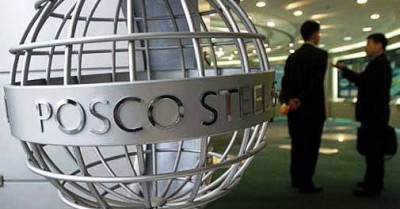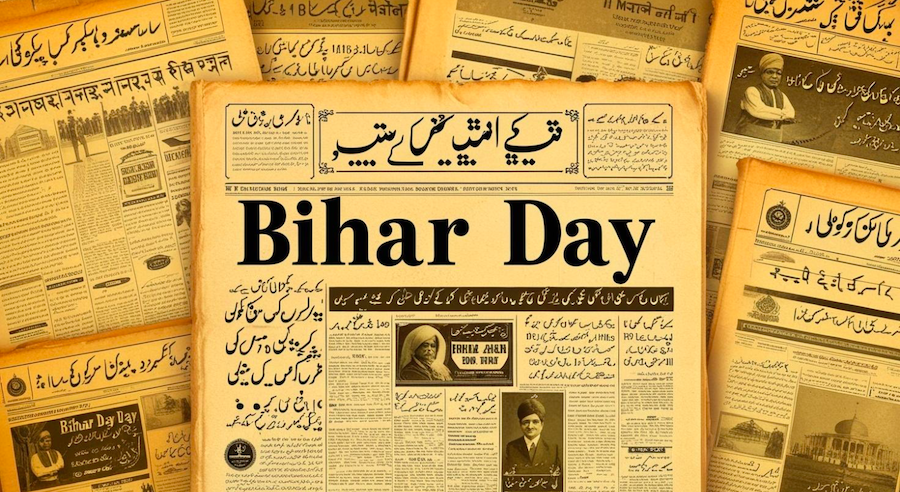BeyondHeadlines News Desk
Authorities in the state of Odisha, India, must provide immediate remedy and reparation to families forcibly evicted in Jagatsinghpur district for a project proposed by South Korean steel company POSCO, Amnesty International India said today.
“These evictions were unlawful and have devastated the livelihoods of thousands of people,” said Shashikumar Velath, Director of Programmes at Amnesty International India.
“Authorities acquired land without engaging in genuine consultation with affected persons, or providing adequate notice or adequate compensation. They have been violating the rights of these villagers for years. They must now ensure that the affected families receive effective remedies.”
Officials from the Odisha government and police resumed forced evictions on 28 June 2013 in continuing efforts to acquire land for the project. On the same day, police personnel baton-charged protestors, injuring at least 20 people.
On 4 July, Satya Kumar Mallick, the head of the Jagatsinghpur district administration, told Amnesty International India that acquisition of 1092 hectares for the first phase of the project had been completed, and authorities would now begin digging trenches to demarcate the acquired land.
Most of the area contained betel vineyards on common land – village property that falls under the authority of local bodies and is intended to be used by local communities – which many families depend on for their livelihoods.
According to Mallick, all farmers in the area had been consulted and given compensation – a one-time fixed cash payment – for land seized, and farmers had “voluntarily” dismantled their betel vines. But local activists and some residents say that they were not consulted or given adequate notice, and that those who refused compensation had their land seized under physical duress without their consent.
“We don’t need their compensation; we want to lead our lives in peace without fear of being beaten, displaced or arrested,” said Ranjan S, a resident of Gobindpur village.
According to the UN Basic Principles and Guidelines on Development based evictions and displacement, all persons threatened with or subject to forced evictions have the right to timely remedy which includes a fair hearing, access to legal counsel, legal aid, return, restitution, resettlement, rehabilitation and compensation.
 “The central and state governments have a duty to respect and protect the rights of these communities, and they need to act accordingly,” said Shashikumar Velath.
“The central and state governments have a duty to respect and protect the rights of these communities, and they need to act accordingly,” said Shashikumar Velath.
“For starters, victims of forced evictions must have access to effective remedies and the right to reparation.
“POSCO must carry out a comprehensive human rights impact assessment in consultation with local communities.
“Authorities must recognize individual and community claims to land, carry out genuine consultation with those affected, and only carry out further evictions as a last resort, as required by international standards,” said Shashikumar Velath.
“Any unnecessary use of force or other rights violations committed by the police must be investigated and those responsible, including those with command responsibility, should be held to account,” said Shashikumar Velath.
“Under the UN Guiding Principles on Business and Human Rights, companies have a responsibility to respect all human rights. POSCO must ensure that it takes steps to become aware of, prevent and address the adverse human rights impacts linked to land acquisition for its project.”
Background Information
POSCO entered into a Memorandum of Understanding (MoU) with the Government of Odisha in 2005, which lapsed in 2010. Indian authorities have granted POSCO India Private Limited, a wholly-owned subsidiary of POSCO, conditional clearance to establish a steel plant, power plant, iron ore mine, township and port on around 4800 hectares of land in Odisha.
Local communities have been campaigning since 2005 against the proposed US $12 billion project – one of India’s largest foreign direct investment projects.
Authorities have frequently used unnecessary force against villagers peacefully protesting the forced evictions and destroyed betel vineyards on common land.
Local villagers have told Amnesty International that the total compensation being offered by POSCO for a vineyard was less than the earnings it could yield in just one year. A special committee constituted in September 2010 by the central Ministry of Environment and Forests (MoEF) to investigate the project has also questioned the adequacy of compensation received, saying, “Mere one point land compensation…will not compensate the loss of sustainable livelihoods.” The committee also said that the compensation excluded certain affected groups like fishing communities and landless labourers.
Local activists say that the state authorities have failed to settle local communities’ lawful claims over common lands, as required by India’s Forest Rights Act (FRA). The MoEF investigative committee also raised serious concerns about the authorities’ attempts to acquire these common lands without settling claims over the land.
A special Forest Rights Committee constituted by the Ministry of Tribal Affairs and the MoEF in July 2010 directed the Odisha government to stop all work till community and individual forest rights claims were recognized. But despite these findings, the MoEF in 2011 accepted the state government’s declaration that no local communities living in the area have rights to the common lands.
Under the FRA, any use of forest land for non-forest purposes requires the consent of local bodies. Local bodies have repeatedly refused to give their consent to the land being used for the project from 2009, but both the central and state governments have ignored gram sabha (village assembly) resolutions.
The two central government committees also stated that the proposed steel project would violate national environmental laws and coastal regulations, and that the potential negative impact on local community livelihoods had not been adequately assessed.
In March 2012, a dedicated environmental court, the National Green Tribunal, suspended the environmental clearance given to the steel plant project. The court said that the Environment Ministry had erred significantly in assessing the environmental impact of the project, and had left “lingering and threatening environmental and ecological doubts unanswered.”
POSCO has applied for the renewal of the environmental clearance for the project. But the company is yet to conduct a comprehensive environmental and human rights impact assessment.
Local villagers have told Amnesty International India that they have faced harassment, intimidation and violence from state police officials for several years. Activist groups say that the police have filed several fabricated cases against those who oppose the project. Abhay Sahoo, the head of the anti-POSCO movement, has been arrested and detained multiple times on false charges and is currently in detention.
Local police officials have also severely curtailed free movement of villagers by erecting barricades and check-points outside villages. Human rights groups like ESCR-Net say these actions, and the threat of detention on fabricated charges, have adversely affected villagers’ access to work, food and health care. Some protestors have reportedly been confined to their villages for several years. A report by India’s National Commission for Protection of Child Rights (NCPCR) in July 2011 said that the occupation of local schools by police officials in the area had also affected children’s access to education.
The acquisition, additionally, is in violation of the Supreme Court of India’s January 2011 judgment on village common lands. Referring to public lands used for the common benefit of local communities for centuries, the judgment remarks that “the protection of commons rights of the villagers were so zealously protected that some legislation expressly mentioned that even the vesting of the property with the State did not mean that the common rights of villagers were lost by such vesting.”
“What we have witnessed since Independence, however, is that in large parts of the country, this common village land has been grabbed by unscrupulous persons using muscle power, money power or political clout, and in many States now there is not an inch of such land left for the common use of the people of the village, though it may exist on paper. People with power and pelf operating in villages all over India systematically encroached upon communal lands and put them to uses totally inconsistent with its original character, for personal aggrandizement at the cost of the village community.”









